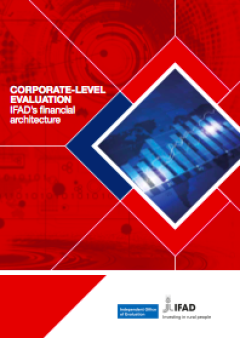
Corporate level evaluation of IFAD's Financial Architecture
The evaluation generated a number of important findings and recommendations that merit close attention. The main finding is that the Fund’s financial architecture has been under strain since the Ninth Replenishment period of IFAD’s financial resources. As it stands, it can no longer support an expanding programme of loans and grants. Moreover, the financial architecture does not pass the test of financial sustainability: accumulating losses lead to an erosion of IFAD's equity. Therefore, the evaluation recommends that important reforms be undertaken to address the factors affecting IFAD's financial sustainability, the mobilization of financial resources and the rationale by which these are allocated. It also recommends introducing new and revising current financial products to respond to the demands of borrowing Member States, as well as to internal and external financial governance. Accomplishing these reforms will be essential to ensure the Fund’s financial sustainability, enabling IFAD to fulfil its unique mandate of rural poverty reduction and make a substantial contribution towards meeting the goals set in the Agenda 2030.
The corporate-level evaluation was discussed at the 124th session of IFAD’s Executive Board on 12 September 2018. The Board noted that the findings and recommendations of the evaluation raised vital questions with regard to the future character and structure of the Fund.

